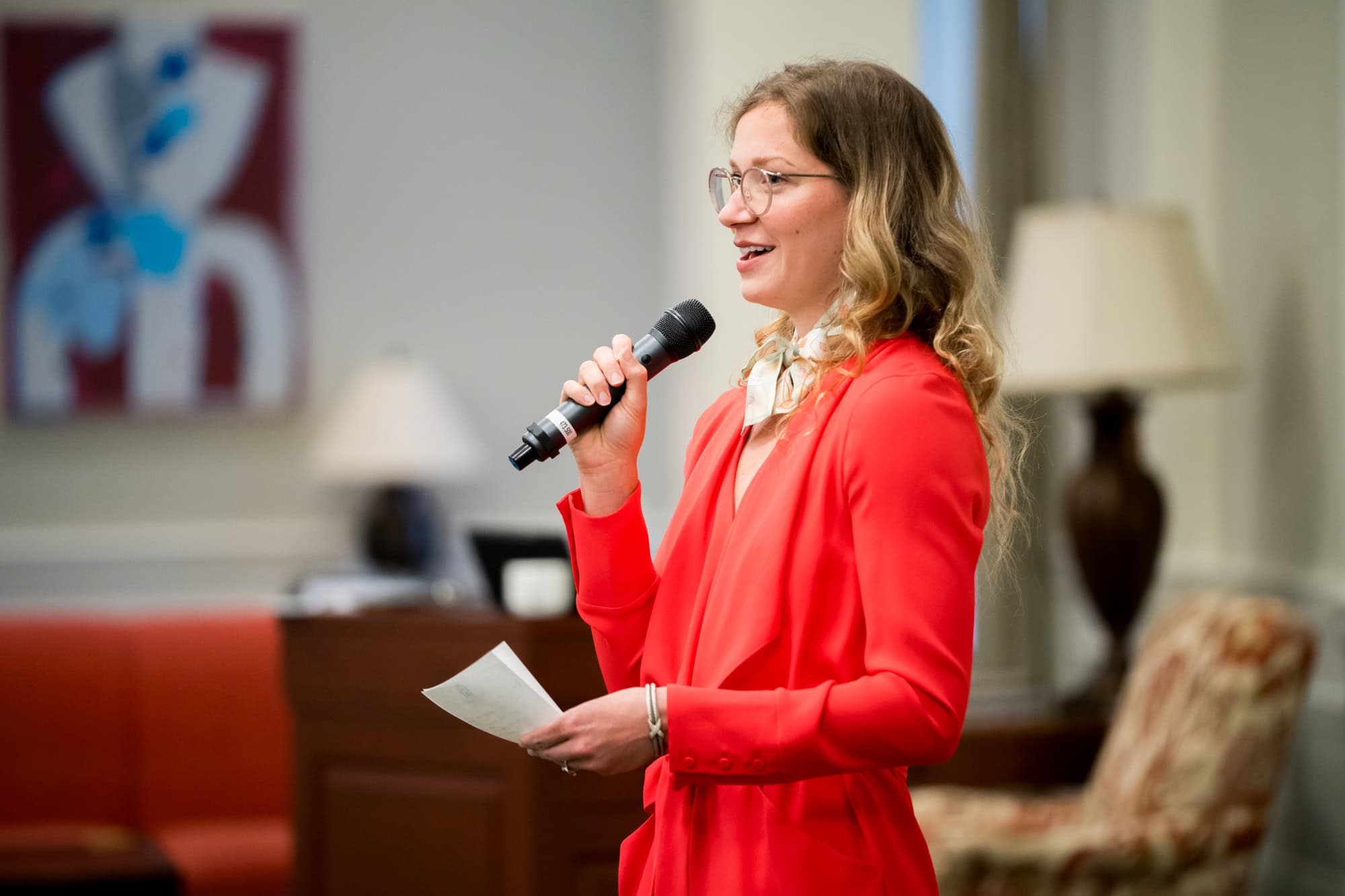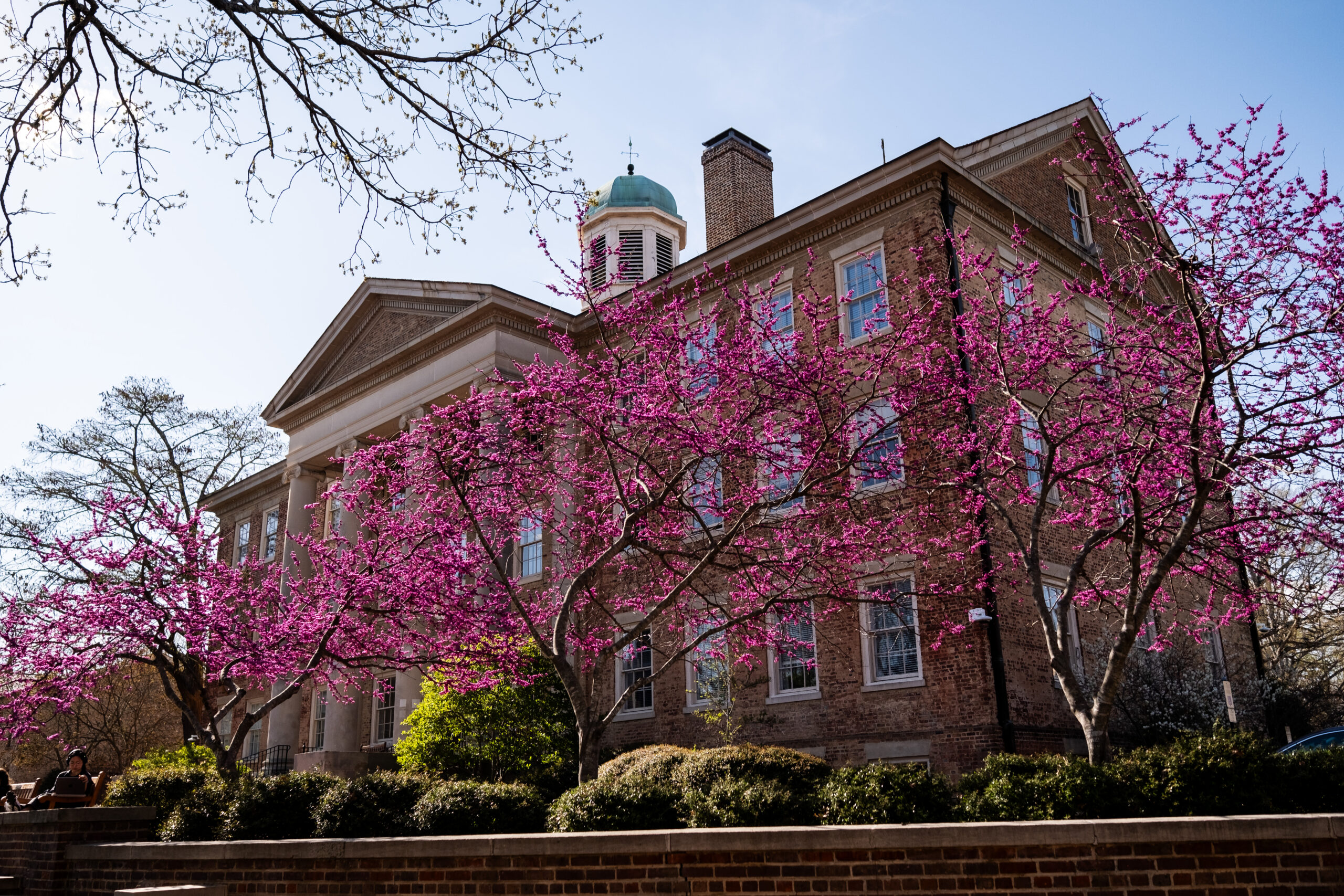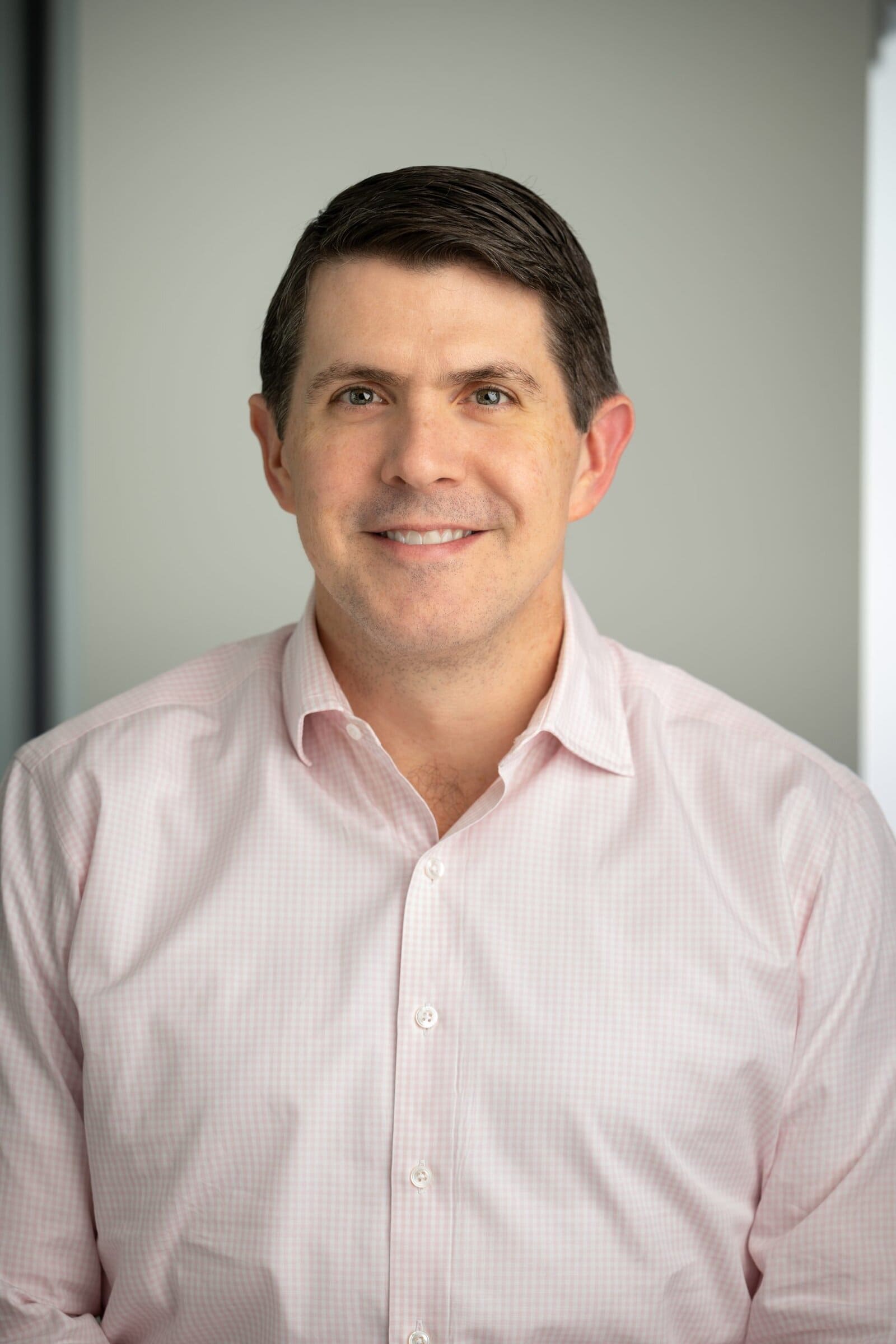
Brad Ives ’86, co-founder and CEO of Credo ESG Solutions in Durham.
Written by Tucker Stillman ’25 of the Morehead-Cain Scholar Media Team
I recently had the pleasure of sitting down with Brad Ives ’86 to talk about his social enterprise, Credo ESG Solutions, based in Durham, North Carolina. Brad is the co-founder and CEO of Credo, an advisory firm that provides forward-thinking environmental, social, and governance (ESG) solutions to private equity firms and their portfolio companies.
For those unfamiliar with the term, a “social enterprise” is a business whose mission includes specific social objectives. Both nonprofit and for-profit social businesses can focus on “truly benefiting people without any regard for making money, except to pay its bills,” according to Brad.
Prior to Credo, Brad worked in government and academia after spending most of his career in the for-profit sector. He chose to co-found Credo because he believed the private sector to be “the biggest area for impact,” especially for working on environmental issues. He wanted to use his skill set to make a difference in the climate crisis.
Throughout our conversation, Brad challenged my thoughts on numerous aspects of what it means to produce “social good” in business. Here are three pieces of advice for scholars who, like me, might be looking to enter the world of social enterprises.
1. Seek broad exposure to multiple industries
“I think the key is not that you should have only one focus for your whole life, but to realize that you can pursue different things at different times.”
My first lesson from Brad is that skill sets develop over time and having patience with yourself goes a long way.
While getting to know other scholars during my first year at Carolina, a recurring theme has stuck out to me: We are a diverse group of individuals with diverse interests. With this comes an internal struggle of figuring out which “one thing” we should dedicate ourselves to for the rest of our lives . . . or so I thought.
When I asked Brad how he combined his interests into a singular mission, he shared the importance of setting yourself up for “greater success later” by gaining experience in a variety of fields. He talked about his personal experiences managing North Carolina’s natural resources as one such example, something he said he’d never have been able to do in his thirties.
Scholars (speaking to myself here, too) would be wise to seek to find their own way, on their own clock.
2. Let a personal philosophy be your guide
“Make sure you have a philosophy that you are grounded in.”
But what good is a broad set of experiences if you don’t know how they align with your values?
So much of business is about navigating relationships, I learned from Brad. As an entrepreneur and business owner, he shared how he’s learned to break down barriers with people he doesn’t see eye-to-eye with.
“Make sure everyone knows you value them . . . and that every voice, even if it is a voice with a wacky position, is heard,” the alumnus told me. Your personal philosophy should guide your behavior.
For Brad, he also tries to “take the emotion out of things,” and use a logical but empathetic approach when navigating complicated deals. Doing so helps establish long-term relationships, build personal trust, and discover mutually beneficial solutions with your clients.
As Morehead-Cain Scholars, we’re called upon to think deeply about leadership and character, and we should live out our values in all aspects of life. As we set out to make an impact on campus and beyond, we should reflect on the principles that we hope will define our work and personal lives.
3. Adopt a results-oriented leadership style
“The key element of leadership is courage.”
Brad describes himself as a “results-oriented leader” who seeks to create positive change through social enterprises. But a lot of life experiences had to take place to arrive at his current attitude and career focus.
He’s learned a lot about leadership over the years, including the truth that leadership often comes down to courage. Sometimes you have to stand strong in your convictions and continue to do good, despite all odds.
The alumnus also encouraged me and other scholars to not assume “someone else is going to get it done,” but to take the initiative when it’s lacking. The next generation of problem solvers needs this sort of courageous leadership.
Although it can be intimidating to imagine the span of your career as a college student, Brad left me with a final piece of advice: stay true to your beliefs and don’t worry about creating a roadmap for your life. Time is on our side.
More about Tucker
Tucker Stillman ’25 of Charlotte, North Carolina, covers business for the Morehead-Cain Scholar Media Team.
Tucker graduated from South Mecklenburg High School in spring 2021, where he was student body vice president and captain of the men’s varsity swim team. He also founded and led ATOM Senior Leaders, a student-athlete service organization, and served as an ambassador for NewGen Peacebuilders, a global youth peace education program. In collaboration with NewGen and Footprint App, Inc., he co-led a team of interns to develop curricula for AP courses that link environmental sustainability with peacebuilding, and he taught a series of webinars on environmental justice and peace constructs to teachers throughout the country.
At Carolina, Tucker is involved in the UNC Undergraduate Student Government Executive Branch within the Department of Campus Life and Student Experiences. He plans to pursue a major in business.
About the Morehead-Cain Scholar Media Team
The Morehead-Cain Scholar Media Team is an extracurricular program and internship run by the Foundation’s marketing and communications team. Scholars of all class years collaborate to produce multimedia content for social media (Instagram, TikTok, YouTube, LinkedIn, Facebook, and X), the Catalyze podcast, email newsletters, and the website (www.moreheadcain.org). The team’s audience comprises more than 3,400 scholars and alumni.
The Scholar Media Team is led by Sarah O’Carroll, the content manager for Morehead-Cain. Participation is a semester-long commitment.


